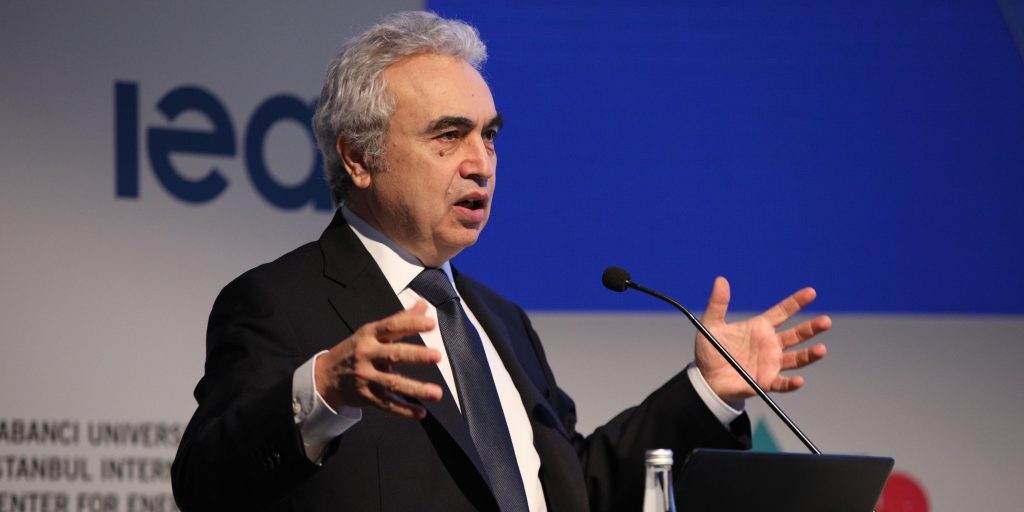- The IEA issued a warning for global oil markets Wednesday, saying supply challenges will persist.
- Three million barrels per day of Russian crude will disappear as sanctions set in, the IEA predicts.
- "Severely restricted refining capacity is causing markets to price in long-term supply deficits in key refined products," the report said.
The current turmoil across energy markets is set to worsen in 2023, as OPEC+ will face severe supply challenges while fuel prices will stay high, the International Energy Agency warned in its first forecast for next year.
The Paris-based think tank said Wednesday that global oil supplies will "struggle" to keep up with rising demand.
In particular, it highlighted that Russian barrels will disappear from this year's market at a rate of 3 million barrels per day as more sanctions set in. That result in overall OPEC+ production falling by 520,000 barrels per day next year.
"OPEC+ would have to further tap into its dwindling capacity cushion, reducing it to historic lows," the IEA said in its report.
Over recent months, oil prices have skyrocketed thanks to dwindling stockpiles and repercussions from Russia's invasion of Ukraine. In March, the price of Brent crude briefly hit $139 a barrel. It's hovering near $120 Wednesday.
US gas prices, too, have surged, recently breaking the $5-a-gallon threshold for the first time ever. And the IEA warned prices will stay high for a while as refineries live "hand-to-mouth" amid low crude and product inventories.
"Severely restricted refining capacity is causing markets to price in long-term supply deficits in key refined products," the agency said. "This translates into a structurally elevated product price outlook."
IEA's warning follows a Reuters report Tuesday that said OPEC expects oil demand growth to slow sharply in 2023 as record-high gas prices pressure the global economy.
The cartel will publish its official forecast for 2023 in July, and sources told Reuters that OPEC will project demand growth of 2 million barrels per day or less, significantly lower than the expected expansion of 3.36 million bpd in 2022.
OPEC sources also told Reuters that they expect demand destruction will hit oil consumption in coming months.
